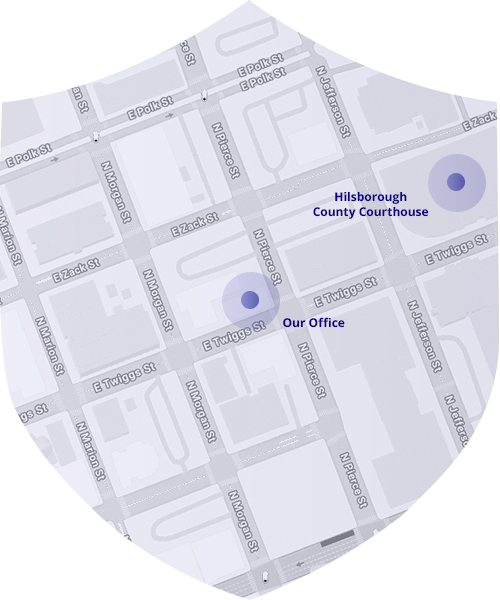- Free Consultation 24/7: (813) 727-7159 Tap Here To Call Us
Florida’s Confession Without Corpus Exception in Sex Crimes

Can You Be Convicted on Your Word Alone? Understanding Florida Statute 92.565 and How to Fight Back
Updated January 18, 2026
| Key Takeaway In most criminal cases, a confession alone cannot convict you — the prosecution must first provide independent evidence that a crime occurred (corpus delicti). However, Florida Statute 92.565 creates a dangerous exception for certain sex crimes. Under this law, prosecutors may introduce your confession without proving corpus delicti, allowing the State to build its entire case around your words. Understanding this exception is critical for anyone facing sex offense accusations. |
In most criminal cases, a confession by itself is not enough to convict you. The prosecution must first provide independent evidence that a crime occurred — a legal principle known as corpus delicti. However, Florida law contains a critical and dangerous exception for sex crime allegations. Under certain circumstances, prosecutors may introduce a confession without proving corpus delicti first.
This Florida sex crime confession exception, codified in Florida Statute 92.565, can allow the State to build its entire case around your words. For anyone accused of a sex offense in the Tampa Bay area, understanding this rule represents the first step in building a powerful defense. At The Brancato Law Firm, P.A., we specialize in defending clients against charges that rely heavily on this exception.
What is the Corpus Delicti Rule in Florida?
| Legal Definition: Corpus Delicti Corpus delicti is a Latin term translating to “the body of the crime.” In practice, the prosecution must prove two things before using your confession against you at trial: (1) A crime actually occurred, and (2) A person or property was harmed as a result of the crime. This safeguard prevents convictions based on false or coerced confessions where no actual crime took place. |
Think of it as the prosecution having to prove a crime happened before they can point the finger at who committed it. This fundamental protection exists because history has shown that people sometimes confess to crimes they did not commit — whether due to coercion, mental illness, or a desire to protect someone else. Nevertheless, for certain sex crimes, this protection is significantly weakened.
The Game-Changer: Florida Statute 92.565
| Critical Warning: The Confession Without Corpus Exception Florida Statute 92.565 creates a loophole allowing a defendant’s confession or admission to be introduced at trial WITHOUT the traditional proof of corpus delicti. This exception applies specifically to sex crimes involving children or vulnerable adults who cannot testify. Under this statute, your words alone may become the entire case against you. |
This exception is most commonly used in sensitive cases involving alleged offenses against children or vulnerable adults. When the alleged victim cannot testify due to age, mental limitations, or other factors, prosecutors often rely on this statute to build their case entirely around defendant statements.
Offenses Covered by Florida Statute 92.565
| Offense | Florida Statute | Severity |
| Sexual Battery | F.S. 794.011 | First or Second Degree Felony |
| Lewd or Lascivious Offenses | F.S. 800.04 | First, Second, or Third Degree Felony |
| Computer Solicitation of a Child | F.S. 847.0135(5) | Third Degree Felony |
| Incest | F.S. 826.04 | Third Degree Felony |
| Child Exploitation | Various statutes | Varies by offense |
| Attempt/Conspiracy/Solicitation | To commit any above offense | Varies by underlying charge |
What Must the Prosecutor Prove to Use Your Confession?
A prosecutor cannot simply decide to use your confession as their only evidence. First, a judge must hold a pretrial hearing outside the presence of the jury to determine if the confession is legally admissible under the exception. This hearing represents a critical battleground where skilled defense attorneys can challenge the State’s entire case.
| The State’s Burden at the Pretrial Hearing To admit a confession under F.S. 92.565, the State must prove two things by a preponderance of the evidence: (1) They cannot prove all elements of the crime through other available evidence, and (2) The defendant’s confession is trustworthy. The judge must make detailed, specific findings on the record justifying why the confession should be admitted. |
How Prosecutors Attempt to Prove “Trustworthiness”
Proving “trustworthiness” is the key element. The State must demonstrate corroborating facts that support the confession. Importantly, this does not require direct evidence of the crime itself. Instead, prosecutors may rely on:
| Type of Corroboration | Example | Defense Challenge |
| Details Matching Circumstances | Confession describes location accurately | Details could be publicly known or suggested |
| Statements to Third Parties | Defendant told friend about incident | Context and accuracy of third-party account |
| Behavioral Evidence | Defendant’s conduct after alleged incident | Alternative explanations for behavior |
| Hearsay Evidence | Permissible at this specific hearing | Reliability and source of hearsay |
How a Skilled Defense Attorney Fights Back
When the government’s case hinges on the Florida sex crime confession exception, it is inherently vulnerable. A confession is not a conviction. At The Brancato Law Firm, our strategy focuses on exposing the weaknesses in the State’s reliance on your words.
| Defense Strategy | What We Do | Goal |
| Challenge Admissibility | Aggressively fight confession use at pretrial hearing | Argue State failed to prove trustworthiness |
| Scrutinize Interrogation | Analyze context, Miranda warnings, coercive tactics | Expose constitutional violations |
| Expose Inconsistencies | Dismantle State’s “corroborating facts” | Show details are unreliable or misinterpreted |
| Motion to Suppress | File if constitutional violations occurred | Have confession thrown out completely |
| Expert Testimony | Present false confession experts if appropriate | Educate judge on confession psychology |
| Defense Focus: The Pretrial Hearing The pretrial hearing on confession admissibility is where cases can be won or lost. If we can demonstrate that the confession lacks trustworthiness — due to coercive interrogation tactics, inconsistencies with known facts, or lack of genuine corroboration — the judge may exclude the confession entirely. Without the confession, the State’s case often collapses. |
Challenging the Interrogation Itself
Even if a confession appears damaging on the surface, how it was obtained matters enormously. We thoroughly analyze every aspect of the interrogation process to identify constitutional violations or coercive tactics that undermine the confession’s reliability.
| Common Interrogation Problems We Identify Did investigators provide proper Miranda warnings? Were you subjected to coercive tactics, threats, or false promises? Did interrogators lie about evidence to pressure a confession? Was the interrogation unreasonably long? Were you denied access to an attorney after requesting one? Were you in physical or mental distress that affected your judgment? Any of these factors can form the basis for suppressing your statement. |
Frequently Asked Questions About Confession Without Corpus
Corpus delicti means “the body of the crime” — the requirement that prosecutors prove a crime actually occurred before using your confession against you. This rule exists because people sometimes confess to crimes they did not commit. Without this protection, false or coerced confessions could lead to wrongful convictions. However, Florida Statute 92.565 creates an exception that weakens this protection for certain sex crimes.
The statute applies to sexual battery (F.S. 794.011), lewd or lascivious offenses (F.S. 800.04), computer solicitation of a child (F.S. 847.0135(5)), incest, child exploitation, and any attempt, conspiracy, or solicitation to commit these crimes. Prosecutors most commonly invoke this exception when the alleged victim is a child or vulnerable adult who cannot testify at trial.
Potentially, yes. Under Florida Statute 92.565, if a judge finds your confession “trustworthy” at a pretrial hearing, the State may use it as the primary evidence against you even without independent proof that a crime occurred. However, the State must still prove its case beyond a reasonable doubt at trial, and an experienced defense attorney can challenge both the admissibility and credibility of the confession.
At a pretrial hearing, the prosecution must prove by a preponderance of the evidence that: (1) they cannot prove all elements of the crime through other available evidence, and (2) your confession is “trustworthy.” To establish trustworthiness, they must show corroborating circumstances that support the confession’s reliability. The judge must make specific findings on the record before admitting the statement.
Defense attorneys challenge confessions at multiple levels: arguing the State failed to prove trustworthiness at the pretrial hearing, exposing inconsistencies in the alleged corroborating evidence, demonstrating that interrogation tactics were coercive or violated constitutional rights, and filing motions to suppress based on Miranda violations or other procedural failures. Additionally, we may present expert testimony on false confession psychology.
The State must demonstrate corroborating circumstances that support the confession’s reliability. This can include details in the confession that match known circumstances, statements the defendant made to third parties, or behavioral evidence. Notably, hearsay evidence is admissible at the pretrial trustworthiness hearing. However, skilled defense attorneys can often demonstrate that alleged corroboration is weak, unreliable, or subject to alternative interpretations.
Exercise your right to remain silent and immediately request an attorney. Do not answer questions, make statements, or try to explain your side of the story without legal counsel present. Anything you say can become the foundation of a prosecution under Florida Statute 92.565. Even seemingly innocent statements can be used against you. Contact an experienced sex crimes defense attorney before speaking with investigators.
Why should I choose The Brancato Law Firm to defend my sex crimes case?
Tampa Attorney Rocky Brancato brings over 25 years of criminal defense experience, including years in an elite unit handling exclusively child abuse, sex crimes, and homicide cases. As former Chief Operations Officer of the Hillsborough County Public Defender’s Office, he led and mentored a staff of over 100 attorneys. Throughout his career, he has mentored generations of criminal defense lawyers. This specialized background means he understands exactly how prosecutors use Florida Statute 92.565 — and how to defeat cases built on this exception.
A Confession Is Not a Conviction
If you face sex offense charges in Florida and the case centers on a statement you made, take action immediately. Your words can become the entire case against you unless you have an experienced attorney fighting back. Tampa Criminal Defense Attorney Rocky Brancato and The Brancato Law Firm, P.A. know the tactics prosecutors use — and how to dismantle cases built solely on confessions.
Call (813) 727-7159 Now for Immediate Legal Help
620 E. Twiggs Street, Suite 205, Tampa, FL 33602
Serving Hillsborough, Pinellas, and Pasco Counties
Related Resources
Tampa Sex Crimes Defense Attorney
Corpus Delicti in Florida Cases

















